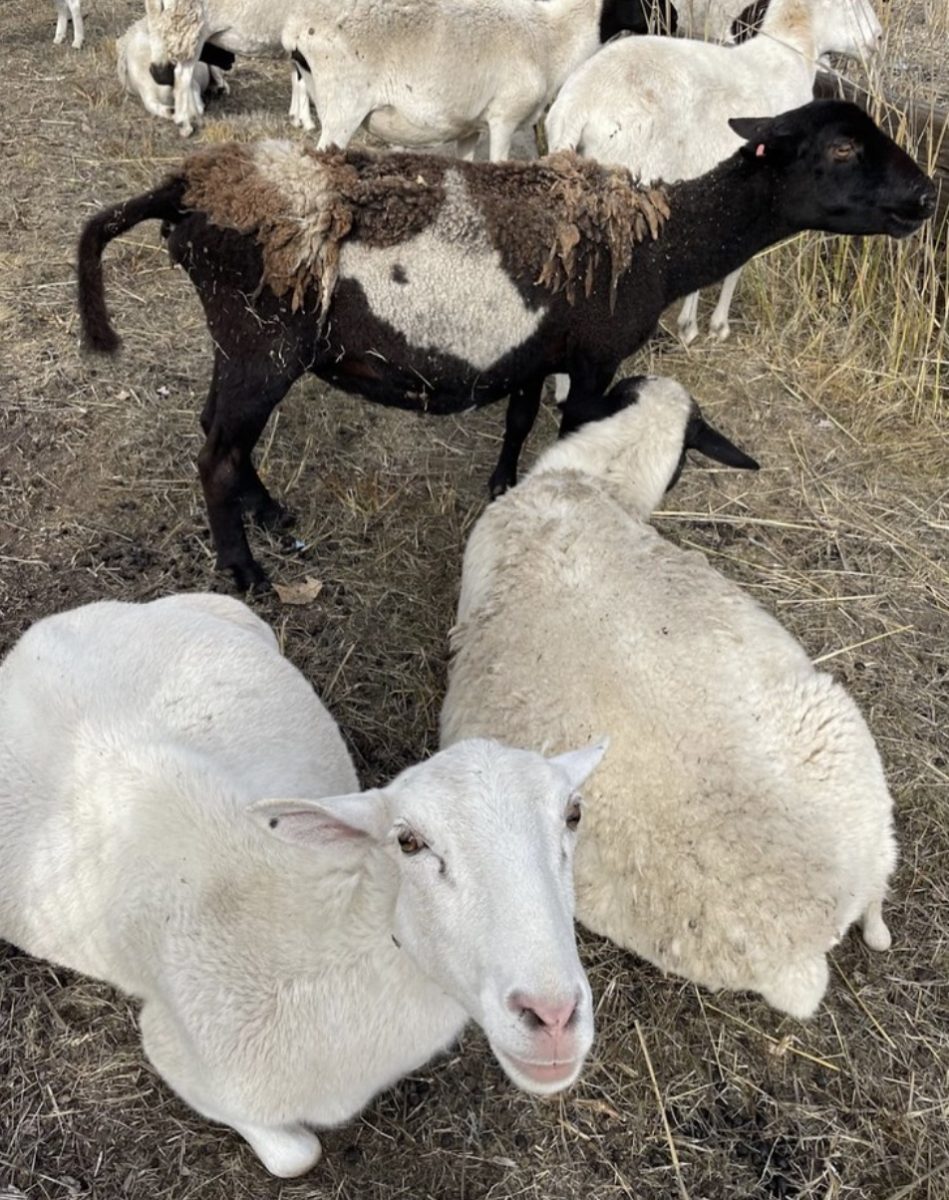On Nov. 1, Sonoma State announced its intention to utilize goats and sheep to tackle challenging vegetation in select areas on campus. This approach aims to reduce fire fuel, control vegetation, and promote environmentally conscious landscaping practices, according to an email from Sonoma State. Starting on Nov. 6, the herd was left to graze around the southeastern corner of the property to clear weeds and brush along the hillside surrounding the
track.
Troy McArdle, SSU’s landscape manager, said that this area was determined to be an ideal starting point as it is both highly visible as well as being, “difficult for staff to access and work on, due to steep slopes and years of overgrowth.” The school has employed a grazing contractor who is on-site 24/7 to care for and manage the herd. This includes ensuring that the animals
have access to water, protecting them from predators and regular inspection of the area they are grazing on.
According to Dana Twedell, the Associate Vice President for Facilities Planning and Operations, facilities management is continuously looking to increase sustainability and improve its integrated pest management systems.
Integrated management systems use “less invasive and destructive methods to control noxious, invasive weeds and pests,” Twedell says, “the use of these animals is a great example of a mechanical control method which reduces dependency on chemical methods for controlling weed and brush.”
Both goats and sheep are being utilized for this project as each species consumes foliage differently. “Sheep graze downward, which is useful for low-lying weeds,” McArdle said, “While goats tend to eat higher-up items, like blackberries.” According to the Animal Agriculture Alliance, goats and sheep are effective in helping to prevent wildfires. Their ability to graze in areas that are not easily accessed by mowers helps to reduce the amount of tinder that could catch fire once the areas dry out.
This sustainable practice is being well received by members of the campus community. Shannon Casteel, President of SSU’s Students for Sustainability club, is overjoyed that Sonoma State is taking the initiative to choose sustainable alternatives.
“I have been waiting for SSU to choose sustainability over convenience,” Casteel said. “As a student I think it’s super cool because we get to see farm animals on campus that some people maybe haven’t interacted with. Who doesn’t love animals?” Casteel said that she’s proud of the university for setting an example not only for other schools in the CSU system, but also for students who may not be aware of alternative methods to potentially harmful maintenance.
Facilities Management plans to actively monitor the effectiveness of the goats and sheep in the area around the track. If successful, they plan to expand the program to other areas on campus, further solidifying SSU’s commitment to sustainability.





































